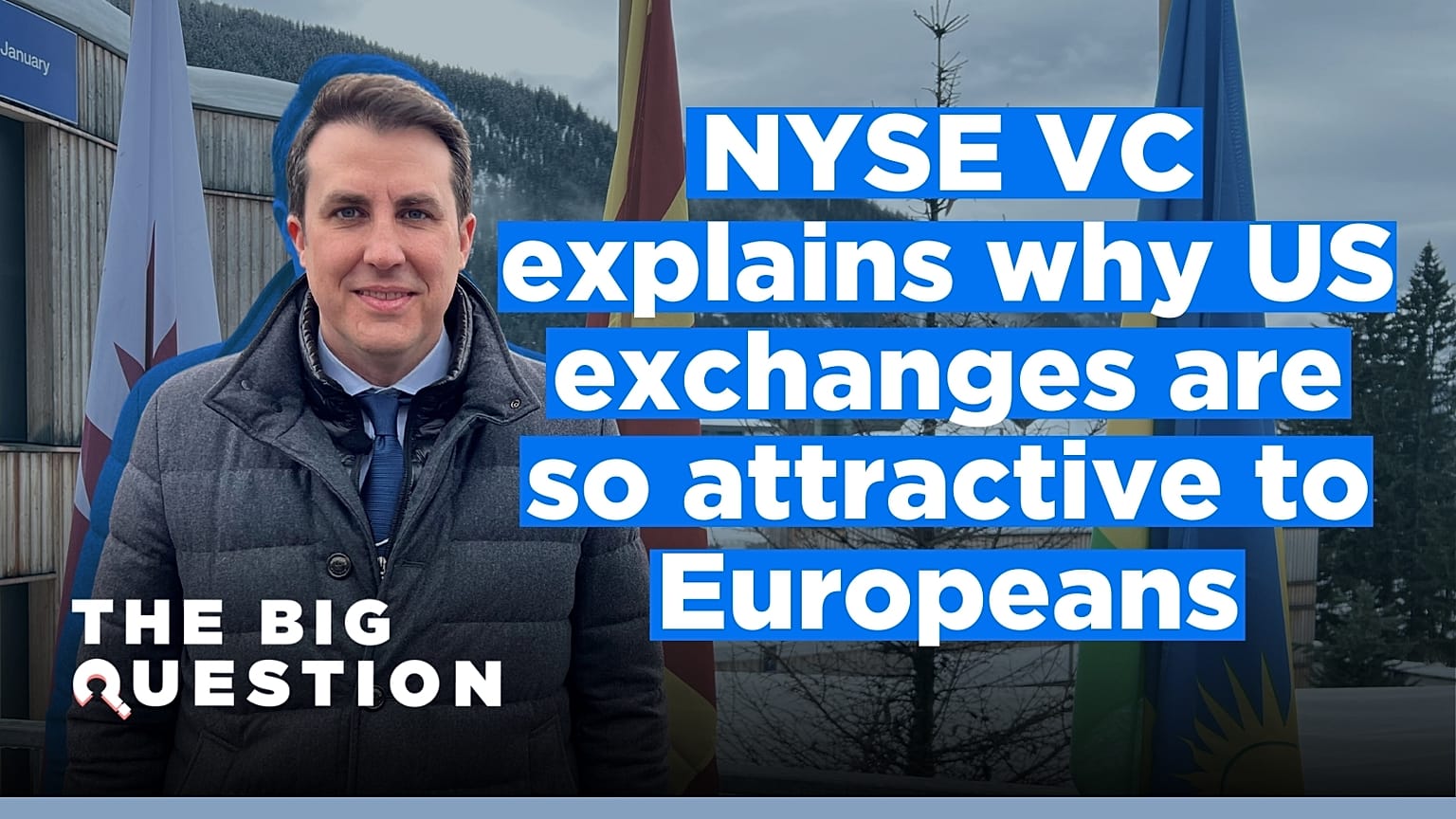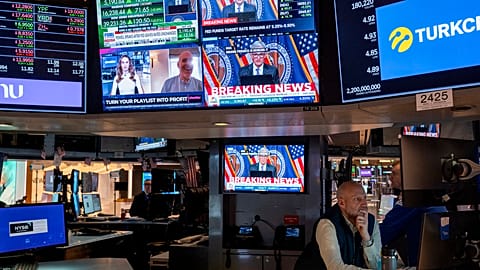NYSE Vice Chair John Tuttle discusses why European companies are opting for US stock exchanges and how the upcoming US elections will impact the IPO market.
Did you know that in 2023, the number of initial public offerings (IPOs) on the London Stock Exchange (LSE) dropped to 23, from 74 in 2022, according to Statista?
 ADVERTISEMENT
ADVERTISEMENT
 ADVERTISEMENT
ADVERTISEMENT
That’s not all: the total IPO proceeds for the Europe, Middle East, India and Africa (EMEIA) region have also fallen 39% from the past year, according to EY’s Global IPO Trends 2023 report.
On the other hand, the Americas saw a 155% surge in total IPO proceeds in 2023, with about 132 deals taking place on US exchanges.
This has led to many companies - especially from Europe but also Southeast Asia and South Africa too - considering upping sticks and listing in the US instead.
German chemicals company Linde, Irish building materials maker CRH and British semiconductor company Arm Holdings have all moved across the pond to the New York Stock Exchange (NYSE) in recent months, and for good reason: it’s the biggest exchange in the world, is about 231 years old, and boasts 2,400 companies from more than 47 countries.
In the latest episode of The Big Question, Angela Barnes spoke to the Vice Chair of the New York Stock Exchange, John Tuttle about why many of Europe’s top companies are leaving European stock exchanges for the US as well as 2024 market concerns and geopolitical challenges.
Why are so many companies leaving Europe for the US?
Simply put, the US stock exchange is the most attractive in the world, the NYSE’s vice chair John Tuttle told The Big Question.
“No matter how you look at the data, the United States is the deepest pool of liquidity and capital in the world, which has the broadest investor base,” he said at the World Economic Forum (WEF) in Davos. “It has a lot of analysts and investors that are focused on growth, not just dividends and value.”
He added that by listing in the US, companies are eligible to be included in many indices that they would not be if they were based outside. “That brings in more capital, a more stable shareholder base and ultimately could help increase their valuation as well,” he said.
Increasing bureaucracy and regulatory issues in several parts of Europe, as well as growing dissatisfaction from investors about outages on the LSE, have also contributed to the move.
On the other hand, US regulations are far more welcoming in many ways, offering incentives for technology companies, especially AI and semiconductor companies, and is also more tolerant of cryptocurrency than several other countries.
With US equities also dominating world markets, forming almost 70% of the MSCI World index, a number of foreign tech companies also want to be where the competition is, to hopefully be able to tap into some of their markets as well.
It’s not all positive
However, listing in the US does not come without hurdles for foreign companies.
Macroeconomic conditions, which are especially sensitive at the moment, can be a big concern. Several companies may also not be aware of the extent of opportunities that US exchanges and markets may offer, which could then lead to them missing out or finding that the move was not as profitable as they expected.
Gaining local consumer insights could also be more complicated than anticipated, along with learning about US-specific ESG and other tax and governance policies. This could be on top of having to completely revamp their business to make the transition from a private to a public company.
The above can quickly involve several millions of dollars and long, complicated legal, financial and taxation processes.
US elections may not impact IPOs, but dampened sentiment remains
Looking ahead, the upcoming US elections aren’t likely to have as much impact on IPO markets as most people believe, Tuttle said.
“You hear a lot of rhetoric even here around Davos that in an election year, we expect a quieter marketplace. I don’t buy into that. I actually think those IPO windows may narrow a bit,” he said. “But I think, you know, high-quality companies can come to market when they’re ready. And we have a lot of high-quality companies lined up to come in 2024.”
However, declining business sentiment and confidence in governments, as well as slowing global economic growth and high unemployment are likely to continue impacting global IPO markets in 2024.
Cautious optimism for 2024
It’s hard to predict whether the world economy will see a soft landing in 2024, Tuttle said.
He notes that businesses and consumers alike have become more resilient and responsible due to the aggressive monetary policy seen lately, increasing financial burdens.
However, the delayed impact of increasing interest rates, as well as the trade and economic disruptions caused by the ongoing Red Sea attacks, could continue to raise inflation longer than expected.
Several investors also expect key central banks such as the US Federal Reserve and the Bank of England to start cutting interest rates soon this year. More optimistic economic data has also buoyed these hopes. However, the banks themselves are more cautious, wanting to be absolutely sure inflation has been tamed, before making any decisions.
The Big Question is a series from Euronews Business where we sit down with industry leaders and experts to discuss some of the most important topics on today’s agenda.
Click on the player above to watch the full episode with John Tuttle, Vice Chair of the New York Stock Exchange.

















